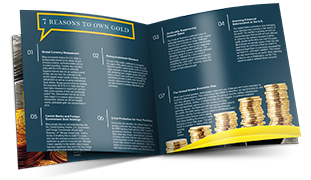
Forecasting Firm That Predicted The Great Depression & Global Financial Crisis Sees Trouble in 2015
In the 1920s, Jerome Levy was a successful businessman and economist. Then, in October of 1929, he became a legend. By using his technique of corporate profit analysis, Jerome Levy decided early in 1929 that it was time to get out of the market. That October the stock market suffered a major, to put it lightly, crash.
Almost eighty years later, the Jerome Levy Forecasting Center once again made a prophetic prediction. The company, according to Bloomberg, declared “the next recession will be caused by the deflating housing bubble.” Not only did the firm pinpoint subprime-mortgage lending as the main culprit, but it also saw how those problems would spread “to virtually all financial markets.” The first prediction was in February 2007, and by the end of the year the United States had entered what some considered a second Great Depression.
The company, bearing the name of its founder, is now run by Jerome Levy’s grandson David. The Jerome Levy Forecasting Center is known for uncannily accurate predictions and is now publicizing its latest glimpse into the crystal ball of doom. According to Bloomberg, “its half dozen analysts attach a 65 percent probability of a worldwide recession forcing a contraction in the U.S. by the end of next year.”
Recently, large firms like Morgan Stanley and Goldman Sachs, have announced more positive views of the economy. The Jerome Levy Forecasting Center could not disagree more.
“Clearly the direction of most of the recent global economic news suggests movement toward a 2015 downturn,” chairman David Levy (reported by Bloomberg) told clients in an October 23rd edition of a monthly forecasting report that the company has been publishing for over 60 years.
Bloomberg looked to dig deeper to find out what is causing all the concern: “Levy argues the U.S. and many advanced economies still have balance-sheet excesses exposing them to renewed financial crisis. There is limited room for policy makers to reverse any slump, and low inflation risks tipping into deflation in many parts of the world.”
Levy also had an opinion on when the Federal Reserve may begin to raise interest rates. Bloomberg reports that Levy is under the impression that rates will remain near zero “until the next decade.” Levy also states, “Without first strengthening substantially, we think it highly unlikely that global financial stability will hold together long enough for the Fed to signal and execute a rate increase.”
The Levy Center may have an excellent track record, but there have been a few bumps in the road. In September 2010, Levy told Bloomberg Television that he saw a 60 percent chance of another U.S. recession. As we know now, the economy actually had some of its biggest gains ever during that time.
Despite that miss, it is hard to argue with Levy’s grasp of the numbers and of history. For example, he is worried that American investors are vulnerable to any downturns in the market because their ratio of stocks to disposable income is higher than at any point in the last 80 years or so. Investors have avoided bonds and gold due to low interest rates and volatility respectively, even though they provide a hedge against a drop in stock prices.
Whether you agree with Levy or with some other major analysts taking a more positive stance, it remains a good idea to have a highly diversified portfolio designed to minimize the impact of an economic downturn.


